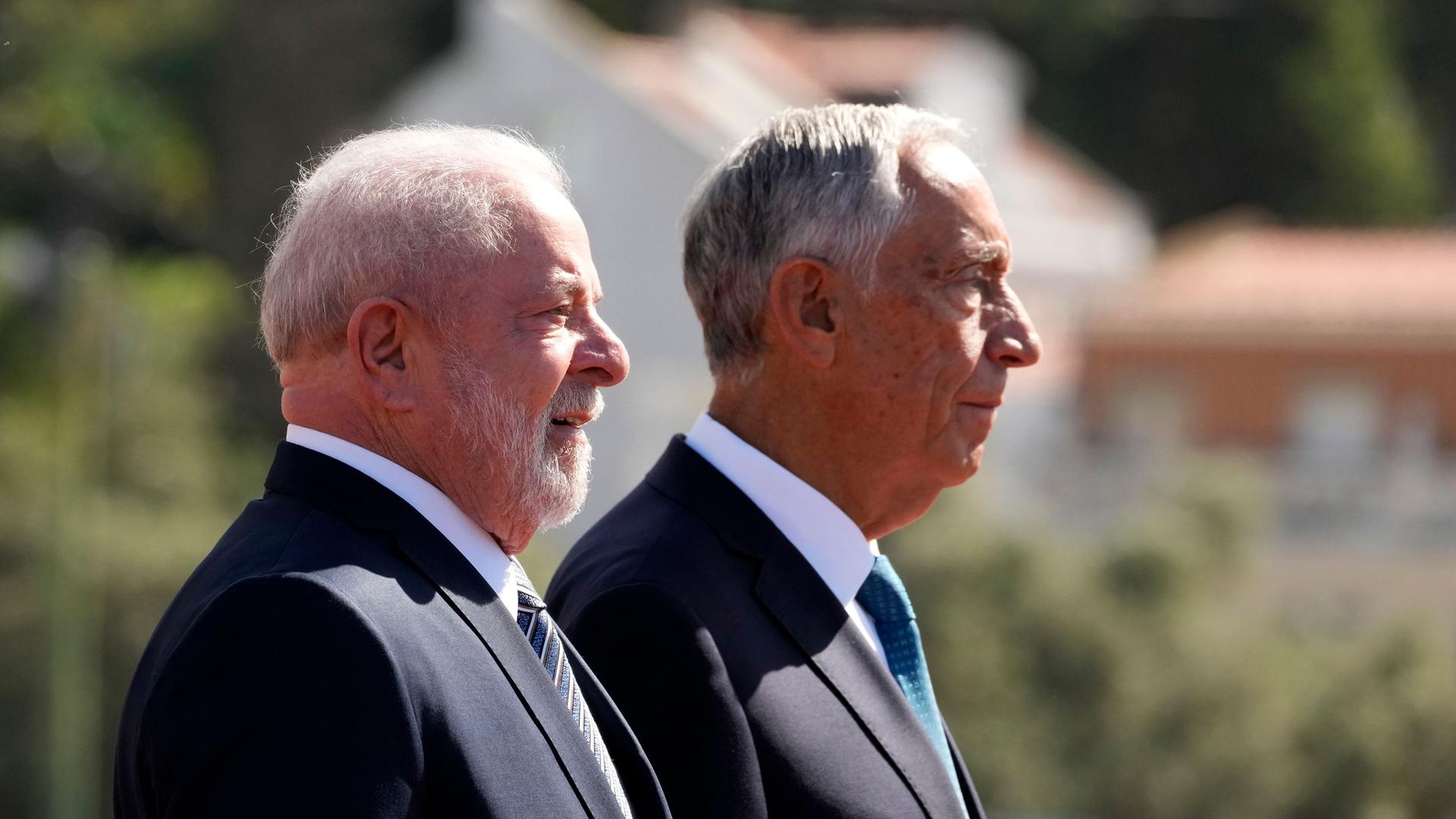Portugal’s president says country should apologize, ‘assume responsibility’ for slave trade
Standing before Parliament on Tuesday, Portuguese President Marcelo Rebelo de Sousa said that Portugal should formally apologize for its role in the trans-Atlantic slave trade.
“We have to take full responsibility for what we have done,” he said. “But it’s not just a matter of apologizing for what we did. Because sometimes, it’s easiest to apologize and turn your back. No. We have to assume the responsibility for the future of what we did in the past — the good and the bad.”
He made the statements during official commemorations of the Carnation Revolution, which marked the fall of Portugal’s dictatorship in 1974.
“The exploitation of Indigenous people … slavery, the sacrifice of the interests of Brazil and Brazilians,” he said. “We have to assume responsibility for the worst of our past, just as we take responsibility for the best of it.”
During the trans-Atlantic slave trade, 12 million Africans were ripped from their homes, transported across the Atlantic and forced into slavery, across the Americas. The Portuguese were responsible for selling nearly 6 million people into slavery— mostly in Brazil.
Brazil was the last country in the Americas to abolish slavery. It didn’t happen until 1888. And the practice still occurred well into the 1900s.
“The declaration of the Portuguese government is symbolic. But it’s late and insufficient to confront the colonial past and all of the barbaric acts carried out during colonization,” said Karine de Souza Silva, a foreign relations professor at Brazil’s Federal University of Santa Catarina.
Souza Silva, who is Black, said much of Europe’s riches were made through the trafficking of people, slavery and colonization. And people have been demanding an apology and reparations for decades.
Souza Silva said that the Portuguese president’s statement this week was, in part, due to pressure — or encouragement — from the Brazilian government of President Luiz Inácio Lula da Silva, who was present for this speech in Portugal, alongside Brazil’s Racial Equality Minister Anielle Franco.
Other former colonial powers also seem to be getting on board.
The Portuguese president’s words came on the heels of an apology by Netherlands Prime Minister Mark Rutter, last December.
He apologized in three different languages, before continuing in Dutch: “For centuries, in the name of the Dutch state, human beings were made into commodities, exploited and abused,” he said. “We cannot change the past, but we can face up to it.”
But these cannot be empty words of apology, said Marco Antonio André, a lawyer in southern Brazil and a member of Brazil’s Black movement.
“These statements are important,” he said, “but there needs to be another step. Recognizing guilt isn’t sufficient. Just asking for forgiveness doesn’t resolve the problem caused by more than 300 years of slavery in Brazil.”
André said the Portuguese state should be internationally responsible for public policies and affirmative action programs to end racism. The racism Black Brazilians suffer today, he said, that the Portuguese state largely caused.
Professor Souza Silva agreed.
“Truly, it’s necessary for the colonial powers to invest in policies for affirmative action, for education, for combating racism, and policies supporting nations that were colonized,” she said.
Whether they will, remains to be seen. But that is what Black activists and organizations in Brazil and abroad have been demanding for decades.
And, it seems, the direction that President Marcelo Rebelo may be guiding Portugal.
Our coverage reaches millions each week, but only a small fraction of listeners contribute to sustain our program. We still need 224 more people to donate $100 or $10/monthly to unlock our $67,000 match. Will you help us get there today?
